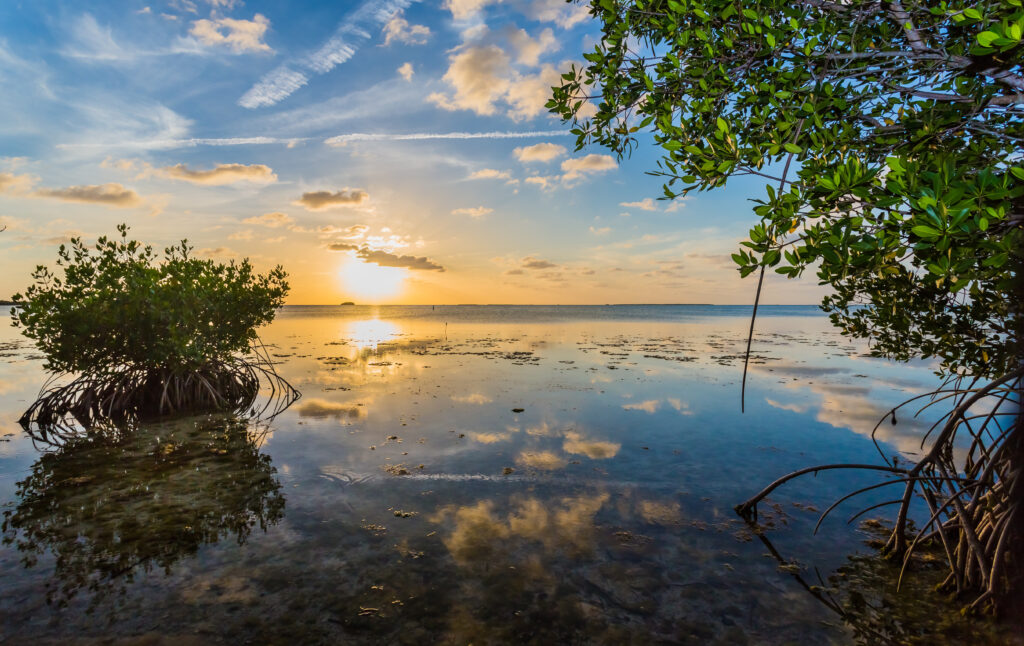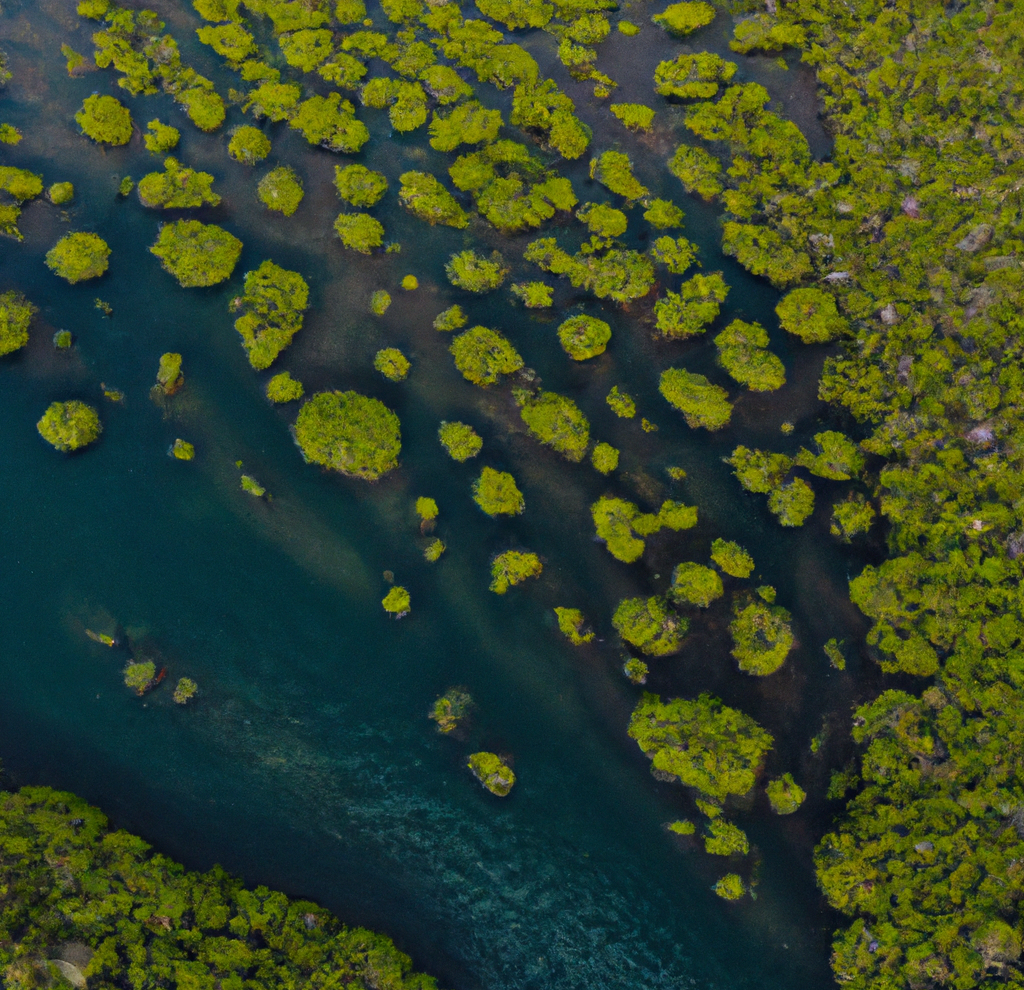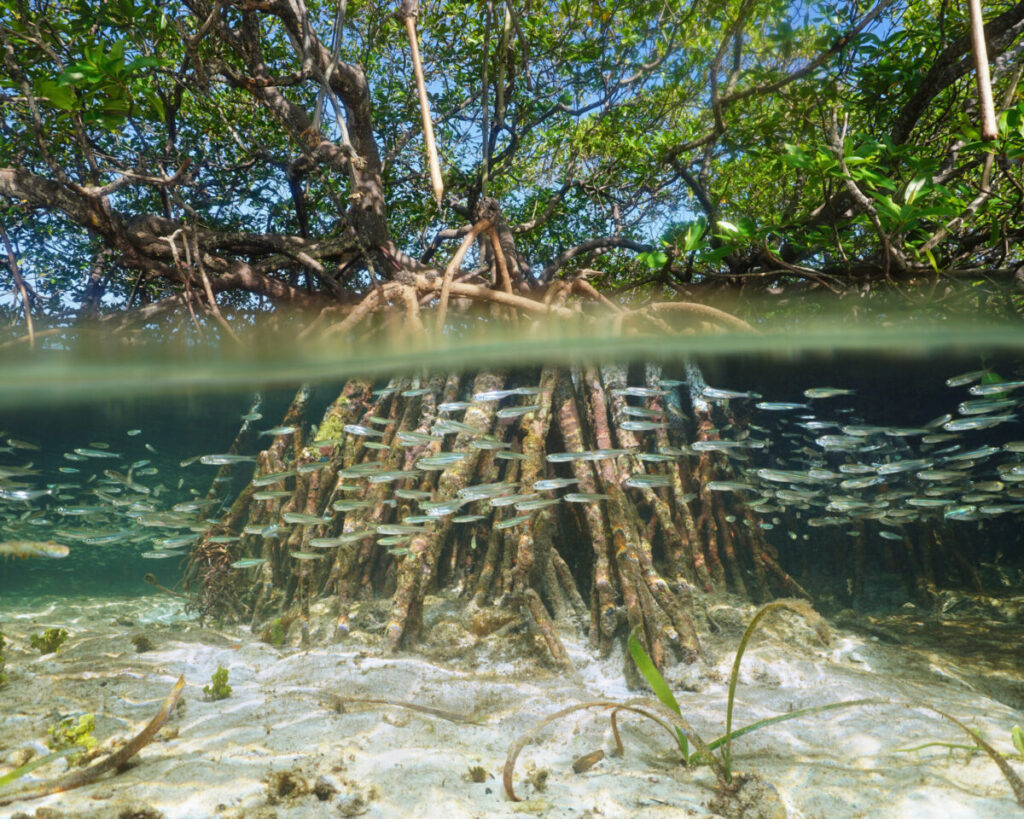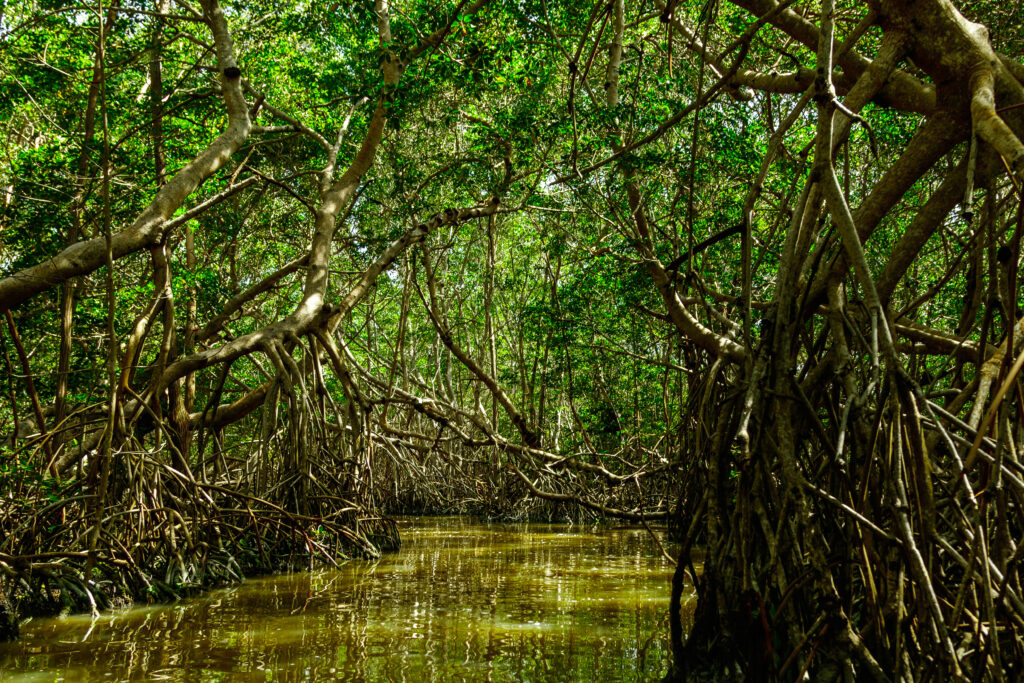WHY MANGROVES MATTER
Under the guidance of Moore Charitable’s Director of Marine Progams, Trevor Bacon, we are dedicated to protecting mangroves — lifelines and lungs for coastal ecosystems and communities –in several critical areas. Despite their importance these remarkable forests are among the most threatened habitats in the world.
- Provide nurseries and spawning grounds for countless fish and marine species.
- Support vibrant biodiversity above and below the waterline.
- Store “blue carbon,” helping to mitigate climate change by sequestering greenhouse gases.
- Protect homes and infrastructure from tropical storms and flooding.
Protecting the Mangroves of Panama
The Islas Secas Foundation (ISF), MCF’s affiliate in Panama, champions mangrove conservation through education, advocacy, restoration, and research.
NoPuertoBarú:
ISF has joined more than 60 environmental organizations in a campaign to protect the Manglares de David from the irreversible damage of the proposed Puerto Barú. The project would dredge a 20-mile channel through one of Panama’s most biodiverse mangrove ecosystems, displacing over 9 million tons of sediment and threatening the nearby Coiba World Heritage Site. Despite viable alternatives, Puerto Barú would destroy critical habitats, undermine local fisheries, and jeopardize surrounding communities. The coalition is urging the port to be built instead in Puerto Armuelles—an infrastructure-ready site with the same economic potential but minimal environmental impact.
Community-led restoration with Wetlands International:
ISF has helped restore mangrove forests along Panama’s Pacific coast, including the Manglares de David, with the participation of more than 80 local volunteers. Together, ISF and Wetlands International are also advancing innovative “blue carbon” offset schemes to reduce the country’s carbon footprint.
Protecting marine life with Mote Marine Laboratory and University of Mississippi:
ISF supports cutting-edge eDNA research to track endangered species such as Sawfish within mangrove ecosystems in the Gulf of Chiriquí. These findings inform science-based management and protection strategies.
Learning to Appreciate and Protect Mangroves:
Through the Aulas Verdes environmental education program, Audubon Panama integrates an environmental curriculum into rural schools located near mangrove ecosystems. The program teaches students the value of nature and the importance of conservation, fostering a new generation of young mangrove advocates.


Protecting the Mangroves of the Bahamas
The Moore Bahamas Foundation (MBF), MCF’s affiliate in The Bahamas, supports restoration, research, and advocacy to protect one of the Caribbean’s largest mangrove ecosystems.
Reporting on mangrove health with Perry Institute of Marine Science (PIMS):
Released the first-ever national Mangrove Report Card in 2022, a landmark tool guiding conservation, policy, and restoration work across the islands.
Monitoring and managing with Bonefish & Tarpon Trust (BTT):
Leading efforts to repair mangroves devastated by Hurricane Dorian, including establishing monitoring sites to track recovery and resilience of newly planted forests.
Mangrove leadership Bahamas Mangrove Alliance (BMA):
In partnership with BTT, PIMS, and Waterkeepers Bahamas, MBF helped launch the Alliance in 2023 to amplify local voices in education, advocacy, and hands-on restoration. BMA leads large-scale recovery efforts across Abaco and Grand Bahama, trains community leaders, and pursues the bold goal of planting one million mangroves by 2025. BMA also advances blue carbon research and ecosystem monitoring to guide restoration and build long-term resilience in storm-impacted areas.
Supporting ongoing efforts with Only One:
Funding supports Only One’s digital fundraising efforts towards a sustainable revenue generator for the Bahamas Mangrove Alliance.
Recovery and resilience building with Friends of the Environment (Friends):
FRIENDS is leading Abaco’s post-Dorian mangrove recovery, restoring over 2,000 mangroves in key sites with 150+ volunteers and students. Through partnerships with BTT and the Bahamas Mangrove Alliance, they provide training in planting and monitoring while engaging youth.

